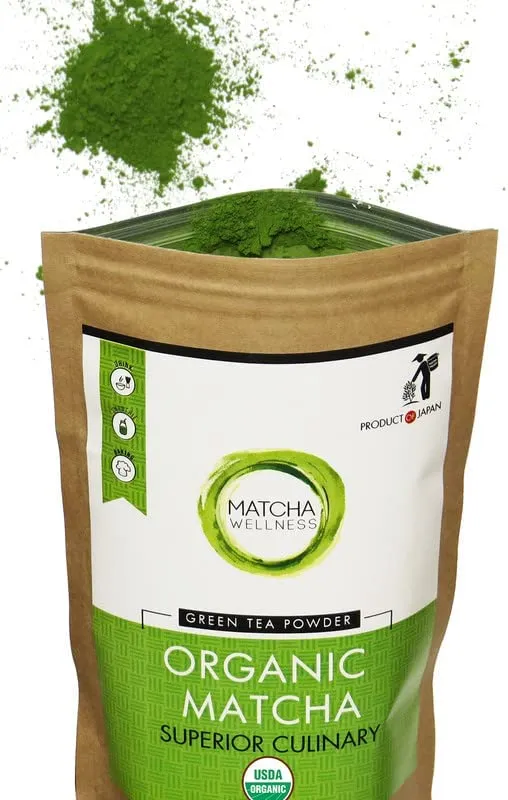Tea is more than an idealization of the form of drinking; it is a religion of the art of life. — Kakuzo Okakura
I love to try new, healthy, productive challenges; if I see a benefit, I love sharing it with friends and family.
So far, I have completed 20+ 30-day challenges and have always wanted to try the Matcha tea challenge.
However, I was reluctant to consume too much caffeine because I was already drinking 3–4 cups of coffee at work.
However, after the pandemic, the work environment has completely changed. I work from home, and it’s a blessing to have the freedom to choose my work hours.
Recently, I tried this 30+ days Matcha challenge.
I did not consume Matcha in just the form of tea. Before I share my findings, let me explain precisely what Matcha is.
What exactly is Matcha?
Matcha is a powdered form of high-quality green tea.
Instead of steeping, the green tea powder is whisked into hot water to create a foamy drink.
The Japanese tea tradition is built around the meditative act of preparing, presenting, and sipping Matcha.
Matcha powder is now widely used in beverages such as tea lattes and boba tea and is a cooking ingredient in everything from ice cream to salad dressing.
Matcha Nutrition Facts
If you are curious about Matcha’s nutritional health benefits, 1/2 teaspoon is usually equivalent to 1.5–2 grams of Matcha.
5 calories
Fat: 0 g
Carbs: 0 g
Fiber: 2 g
Sugar: 0 g
The caffeine content in Matcha
Matcha has more caffeine than green tea, about the same as black tea, and less caffeine than brewed coffee.
Matcha is made from shade-grown tea bushes, so the leaves retain more caffeine.
The amount of caffeine in a cup of matcha tea will vary depending on how the Matcha was processed and prepared.
Tip: Read the packaging carefully when you buy the product.
8 Oz. Beverage Ave. Caffeine Content
Green Tea --- 24 to 40 mg
Black Tea --- 14 to 61 mg
Matcha --- 25 to 70 mg
Brewed Coffee - 85 to 200 mgThe answer is simple. I wanted to see health benefits because everybody is unique, and tea/coffee affects everybody differently.
7 Proven Health Benefits of Matcha
Matcha is much more concentrated in terms of the ingredients because it’s made from ground whole tea leaves. — Dr. Frank Hu
Matcha has numerous health benefits. Here is a couple of them.
High in antioxidants
Toxin and heavy metal removal from the body
According to this study, Matcha promotes liver health
Inflammation reduction
Acting as a suppressant of appetite
Enhance your brain function — in my case, my focus level increased. This research paper validates my point.
Matcha may help to promote heart health in the long run
Some studies show that Matcha may help to prevent cancer (breast, skin, lung, and liver cancers)
Slowing the aging process by promoting cell regeneration
Improving Immunity
How did I consume Matcha?
Matcha can be found in most grocery stores, health food stores, and online. I prefer to buy stuff online.
I ordered over Amazon.
You can easily get it at your local grocery store.
When you open a container of Matcha, it typically stays fresh for only about two months.
Tip: You can keep it fresh by storing it in an airtight container in the freezer or refrigerator.
Matcha is typically made into a warm tea by combining a teaspoon of powder with a cup of hot water and whisking until the mixture is bubbly or foamy.
Here are some recipes that you can try with Matcha:
Iced or hot latte with Matcha
Smoothie
Ice cream
Cake recipe
I preferred the simplest way.
i) Hot latte
ii) Pre-workout
The Matcha brand I consumed

What is the best time to drink Matcha?
Pre-workout — to boost your energy
Morning — Instead of consuming coffee, give it a try
After a meal — I never drank Matcha after a meal.
Some people love to drink after 6 p.m., but I don’t recommend caffeine after 6 p.m. if you want quality sleep.
Week-1
During my Matcha challenge, I did not consume coffee or sneaky caffeine products like chocolates, sodas, pre-workouts, energy drinks, etc.
I planned to consume two cups of Matcha in week one to see the maximum results. I mostly drank Matcha first thing in the morning or as a pre-workout.
I did not see a significant difference in my energy level or in my overall health.
I felt more tired in the first week. Maybe I was not drinking 3–4 cups of black coffee, which people say boosts your energy level. Anyway, let’s move to week 2.
Week-2
On day 9th, I started to feel more focused. I always followed every day of Matcha. I was drinking 1/2 teaspoon in the morning and one teaspoon before a workout.
I was happy with my Matcha results as it started working to keep me calm, focused, and energetic at the same time.
Note: I always prefer a balanced diet during all these 30+ day challenges. T
Week-3
Well, in week three, I was actually craving the Matcha tea first thing in the morning. My brain was missing that grassy smell in the morning.
I learned that the aromatic, fresh, grassy smell is from the high amounts of acid L-Theanine.
L-Theanine is a non-protein amino acid that promotes relaxation by reducing anxiety and stress levels.
How do you know matcha quality?
Matcha will always be powdered green tea, but any powdered green tea produced outside of Japan will not intrinsically be matcha. — Lauren Danson
Lower grades of Matcha or oxidized Matcha smell stale and like hay (or worse, fishy)
Week-4
In week 4, I was pretty much happy that I embraced this challenge. I literally saw a lot of positive results.
One of the best things I observed was that my brain told me, “ Wow, you are putting some good stuff in your tummy.”
I preferred matcha instead of coffee in the morning. But we never. At the moment, I am sticking to Matcha, but you know, coffee is almost everywhere.
I enjoyed a different taste, especially the fresh grassy smell.
One more thing: My wife said that my skin is looking pretty clear. It could be due to the Matcha or my skincare routine, where I recently started using retinol.
The bottom line
In conclusion, I am super happy that I decided to try Matcha and plan to take it for a long time.
Based on the health benefits, I recommend trying it for at least 30 days to see some positive results.
Matcha is also packed with a high amount of antioxidants. Many studies also proved that Matcha is highly beneficial to lose weight and reducing heart issues.
The best part is Matcha’s highly customizable tea. You can add in smoothies, pre-workout, cake, and ice cream.
It’s up to you how you would like to consume. I preferred the tea way…
Book recommendation
Jade Leaf Matcha Modern Starter Set – Includes: Electric Matcha Whisk + Milk Frother, Stainless Steel Spoon, Stainless Steel Sifter, and Printed Handbook.
As a new reader, please check my holistic health, productivity, and well-being stories reflecting my reviews, observations, and 30+ days of experiments (29 completed so far) to build a sustainable healthy lifestyle.
My Energy Booster (Supplements Stack)
Many readers asked if I consume any supplements.
Yes, I do.
However, I consider supplements as add-ons, not solid meal replacements.
I prefer to eat whole foods and avoid canned ones. I also believe that recent food quality has lacked proper nutrition, so I take supplements to fill the gap.
I only consume proven and continuously consumed supplements by scientists like Andrew Huberman or experimental gentleman Tim Ferris. Supplements will help you enhance your overall life.
| What I Take & Why | Supplement Name – Optimize your health journey |
| Sleep Supplements Preferred to take 30 – 60 minutes before bedtime. | Magnesium L-Threonate –> 144 mg Apigenin –> 50 mg L-Theanine –> 200 mg |
| Supplements for Brain Performance | Creatine –> low dose (5 grams) taken daily Omega-3 Fatty Acids –> 2-3 of EPA daily1 Phenylethylamine (PEA) |
| Anti-inflammatory Supplements | Turmeric / Curcumin with Black Pepper -> Joint Support N-Acetyl Cysteine (NAC) –> Support immune function Methylsulfonylmethane (MSM) –> for treating injuries Athletic Greens –> as “nutritional insurance” |
| Physical Performance + Recovery Supplements | Grass Fed Whey Protein –> Joint health and recovery Alpha-GPC –> Before a workout L-Tyrosine –> To enhance exercise performance Branched-Chain Amino Acids –> to enhance muscle building & recovery L-Glutamine –> for gut health and muscle recovery Zinc –> for exercise recovery (muscle damage) |
| Immune Support Supplements | L-Lysine –> to combat viral infections and cold sores Apple Cider Vinegar –> to boost immunity Medicinal Mushrooms –> to enhance immune function |




